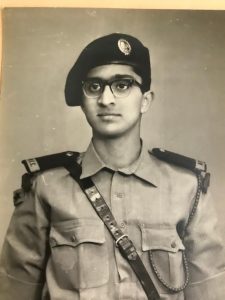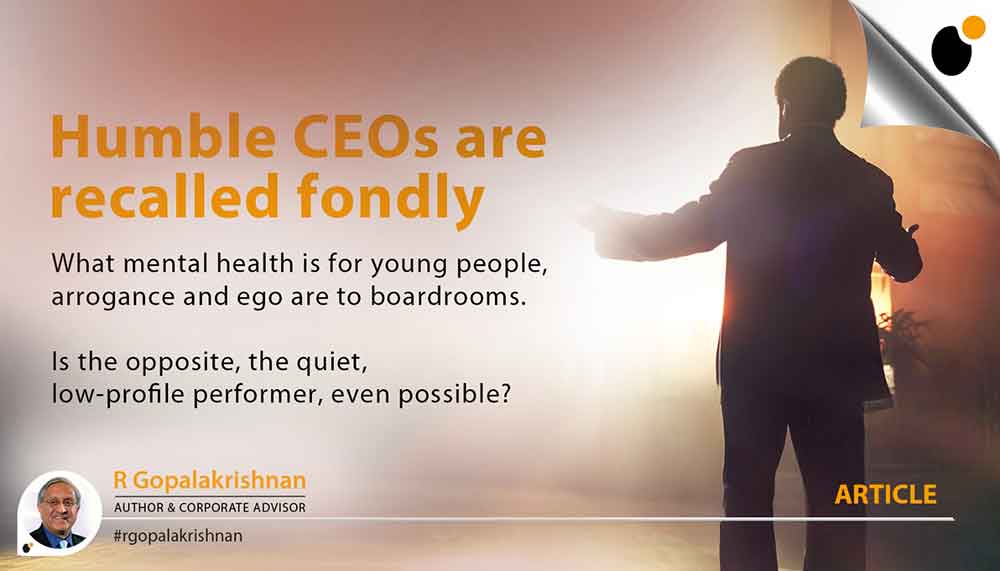GROWING UP INFLUENCES by R Gopalakrishnan
How much our growing-up years influences our later personality later is worth pondering. 
I was born when Lord Wavell was ruling India , and when Gandhiji and Jinnah were walking the streets of Mumbai. It was in Calcutta 1945, when I was born. I studied and lived in Bengal (Calcutta and Kharagpur) till I was 21. My Bengali friends would say that I was a Tamil masquerading as a Bengali and my Tamil friends thought I was a Bengali, masquerading as a Tamil. I reckon I was both.
In addition to Tamil and Bengali, I learnt English, Hindi, Sanskrit and German—not because I was a polymath, but because my mother thought linguistics would be helpful. Indeed, later in life, linguistic diversity helped me in adapting, accommodating, understanding and empathy. The language agility helped me better connect with people.
St Xavier’s School and College were dreams—sports, elocution, dramatics, and, of course, education. I went to temple, church, and mosque with equal fervor, celebrating the one Supreme God, known by so many names. BSc (Physics) Honors followed school and then B. Tech at IIT Kharagpur. Those are impressionable years for any child. Some of my lingering impressions that returned to me during adult years were:
-
- Fitness is power: Former Davis Cupper, Dilip Bose, conducted tennis coaching at South Club. He would insist that “the body is the only car you will possess for life, so guard it like your only car.” I did, and I remember his advice to this day.
- Friends are for life, more so than knowledge: I cannot remember all my class lessons, but I distinctly recall school and college friendships. Relationship-building with no ulterior motive is a great social and psychological asset.
- Green is how you perceive it: Father de Bonhome explained optics by saying what you see is your own reality, not something real and outside of yourself. The green object absorbs all other colors, and sends back only the green wavelength, that is why you perceive it as green. It is not green!
- The soldier does not choose the timing or his battlefield: My family migrated to Bombay when I was in the first year of college. I had the enigmatic and boring chore of closing some legal case and winding up the household assets of a large bungalow by auctioning them. I felt sorry for my situation, while friends seemed to enjoy themselves on Park Street. But that experience taught me, and I learnt to “take charge” and avoid self-pity. It was hugely valuable in later life.
- It is important to know where you came from: The occasional family visits down south, the interactions with grandparents who had spent all of their life in the village, and a deep immersion into the life in a village—these were great sources of inculcating humility. I think our family was not as well-off as others thought, but we had more than we needed! That was being middle-class, a hugely valuable identity.
Getting into IIT Kharagpur was a big deal—at least within our family, and in those days. I was the first in my peer group of siblings and cousins to get into an IIT, and the first to pursue a “double degree.” My parents were hung up about us sporting double degrees after their names. Thy were very proud as both of them had only a secondary school education and were determined that their next-gen should be well-qualified. That struck me as another middle-class virtue.
Living in Kharagpur turned out to be a dream–it was dramatic, challenging in parts, lovely for the most part, and passed so quickly! The challenges of living, study, and socialization were overcome largely by meeting the challenges head-on. It taught me that any life challenge is like a loose ball in cricket. You should engage suitably with it, not avoid it. The election as Vice President of the Students’ Gymkhana in 1966 seemed like a life-crowning achievement at that point of time, rather silly in hindsight.
Armed with an electronics education, a primitive curriculum by the standards of these days, I joined the Hindustan Lever (HLL) computer department as a systems analyst/programmer. The salary was princely at Rs 750 pm, with prospects of becoming a “covenanted manager” in two years. I worked in an air-conditioned computer room at a time when even senior officers sat in an office cabin with a punkah above!
My grandmother said she was not sure what I did, but she expressed her determination to get me married to a charming Tamil girl at the earliest (before girls from other places would ensnare me, she added!). The family succeeded and I got married when I was a tender 24 to a girl who was an even more tender 20!
HLL was a dream company in many ways. It not only taught me operations, it taught me ethics of business, it taught me about the larger role of business in society, it taught me about adjusting and adaptiveness while building personal resilience. Over the next thirty-one years, I moved from Computers to Sales to Marketing and on to General Management, with change of roles and physical relocation to the south, west, north and overseas. As HLL’s Vice Chairman, I had become quite comfortable with consumer goods—and thought I knew one hell of a lot. That was until I met Ratan Tata.
Tata was a different culture compared to HLL, though both had great similarities of being professional, ethical, and competent. I accepted the offer to join as a director of Tata Sons. It was a dream again, challenging occasionally, but overall, significant and enriching. I knew absolutely nothing about power generation, automobiles, industrial chemicals, air conditioning, watches, infrastructure and so on. I was sort of beginning my career all over again, innocent, and curious. As botanists would say, it was neoteny at work, a strategic rejuvenation of a grown-up plant.
After a further career of seventeen years at Tata, I happily retired in 2016 to begin my third career as an author and a business commentator. Having written seventeen books, and a million words of articles, delivered over one hundred keynote speeches all over the world, and an active social media activity, I feel I am emptying myself of the experiential wealth that has accrued to me—not by my accomplishments but through the Providence of circumstances.
The more I share of my experiential wealth, the wealthier I become!
Click the link below for all the details of IIT 1967 Batch



